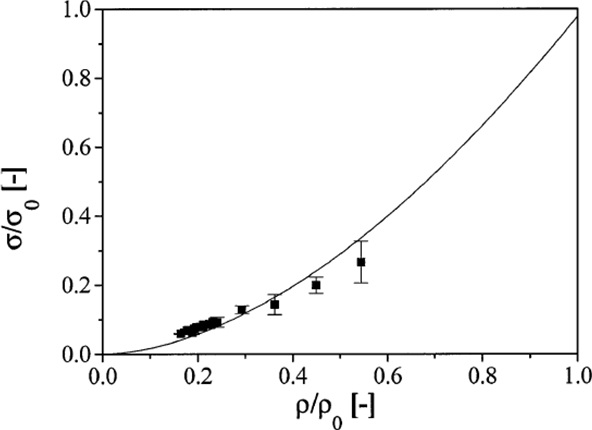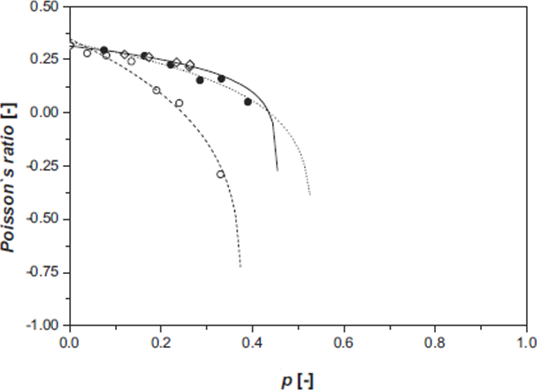Percolation theory: conductivity and mechanical properties of metallic foams and porous solids
Summary
Percolation theory was successfully used to explain physical (electrical and thermal conductivity) and mechanical properties (modulus of elasticity, shear modulus, Poisson`s ratio) dependence on porosity for metallic foams and porous materials.Objectives
The porosity dependence of porous materials and metallic foams physical and mechanical properties is modelled by various models, which ought to bypass the following problems: The experimental data for modelling ought to be from as wide as possible porosity range for the investigated material prepared by the same preparation method from the same type of the powder; it is necessary to incorporate the property of the solid material into model (when known) and to include the initial porosity of green compact. When not, obtained model values are just the best fitting parameters valid only for the investigated porosity range.Achievements
We have demonstrated that the powder consolidation is in general a connectivity problem, which is studied by the percolation theory. According to the percolation theory, there exists a critical volume fraction called a percolation threshold, at which a solid phase forms a continual network spanning across the whole system. At and above the percolation threshold the geometrical, physical and mechanical properties of the system behave in power law form, which is characterized by the characteristic exponent of given property. Normalized dependence of electrical conductivity of aluminium foams on apparent density
Normalized dependence of electrical conductivity of aluminium foams on apparent density Influence of powder size on Poisson`s ratio porosity dependence for porous Th2O: (╌○╌) 0 - 2 μm, (┄●┄) 2 - 4 μm, (─♢─) 4 - 44 μm
Influence of powder size on Poisson`s ratio porosity dependence for porous Th2O: (╌○╌) 0 - 2 μm, (┄●┄) 2 - 4 μm, (─♢─) 4 - 44 μmAdditional reading
J. KOVÁČIK and F. SIMANČÍK, Aluminium foam - Modulus of elasticity and electrical conductivity according to percolation theory, Scripta Mater. 39, 1998, 239 - 246.J. KOVÁČIK, Correlation between Young's modulus and porosity in porous materials , J. Mater. Sci. Lett. 18, 1999, 1007 - 1010.
J. KOVÁČIK, Correlation between elastic modulus, shear modulus, Poisson's ratio and porosity in porous materials, Adv. Eng. Mater. 10 (3), 2008, 250 - 252.
Related projects
- Development of the fabrication technology and characterisation of the properties of aluminium foam, 1995 - 1997
- Gradient materials prepared by powder metallurgy from micro and nano powders, 2006 - 2009